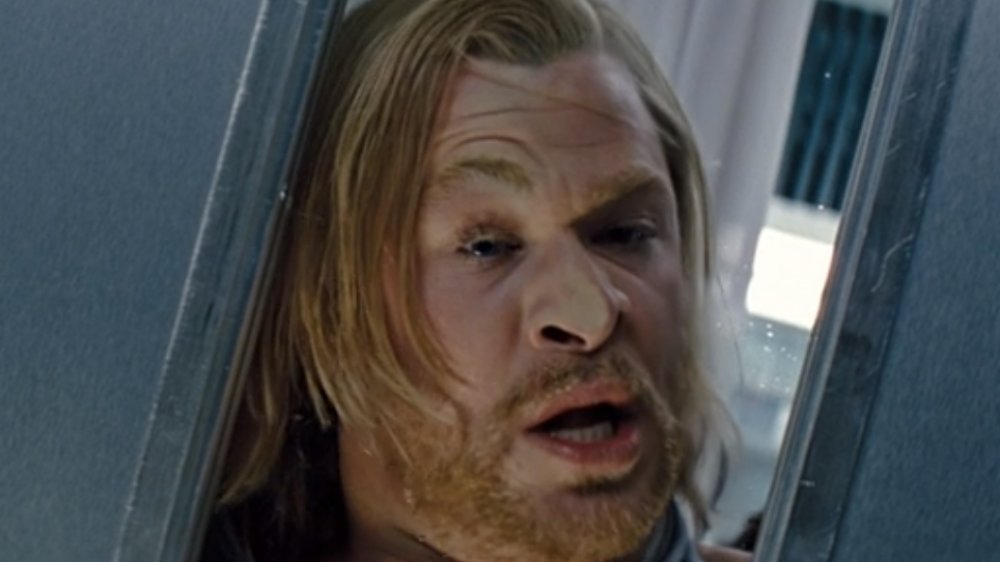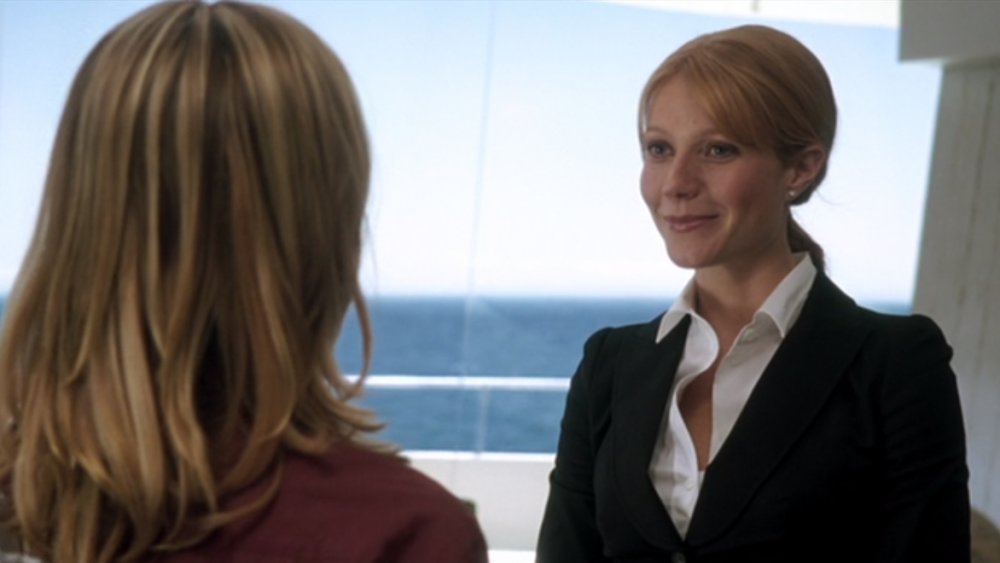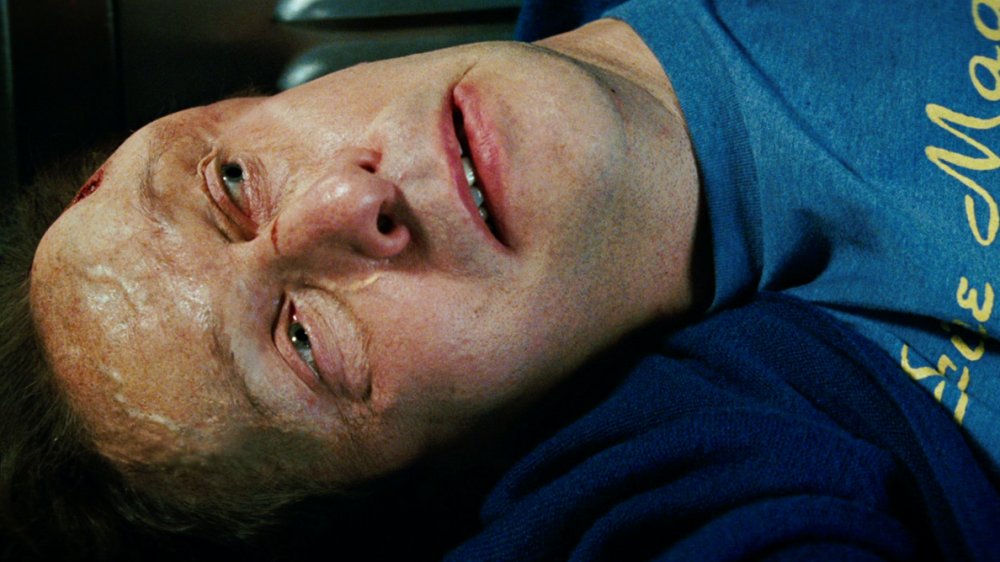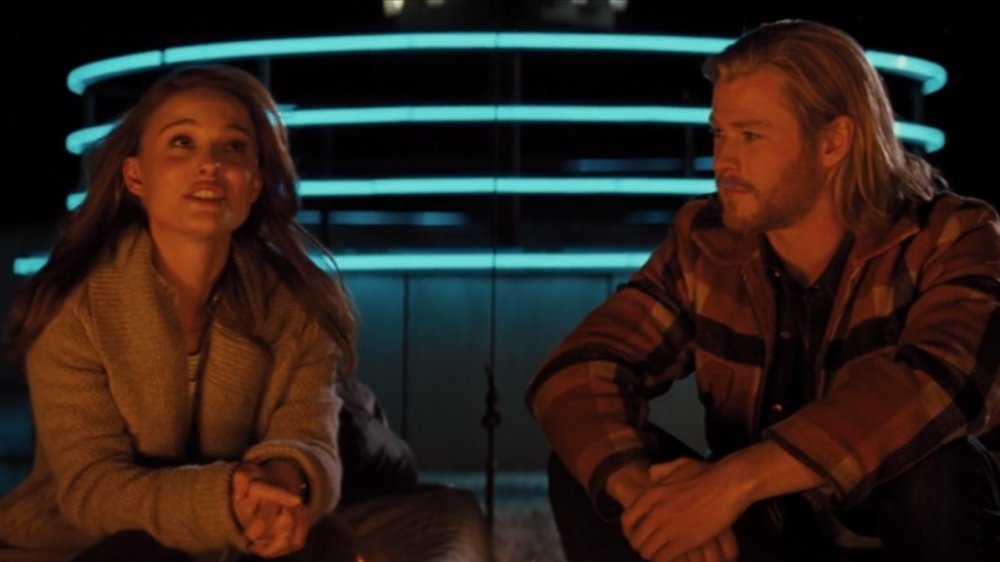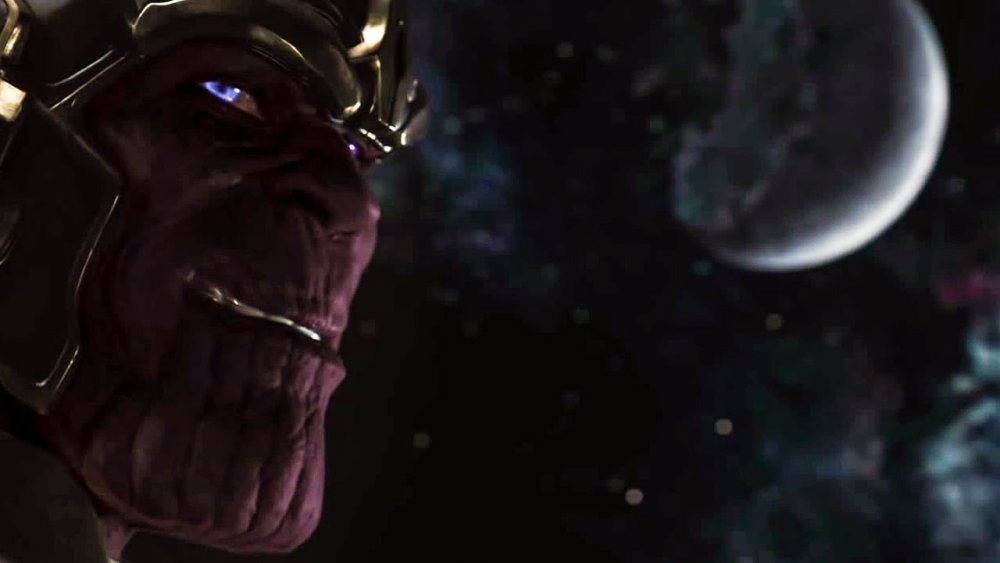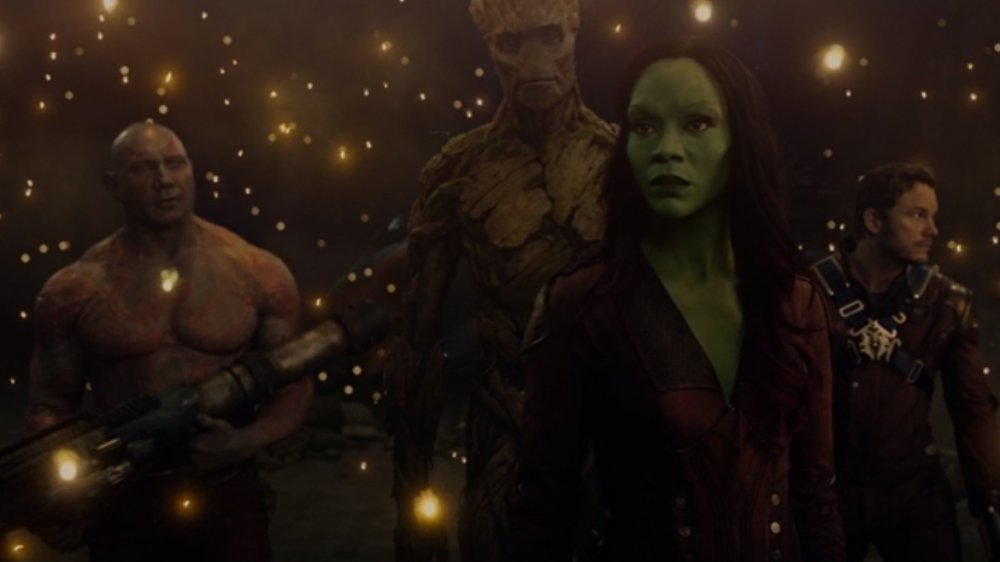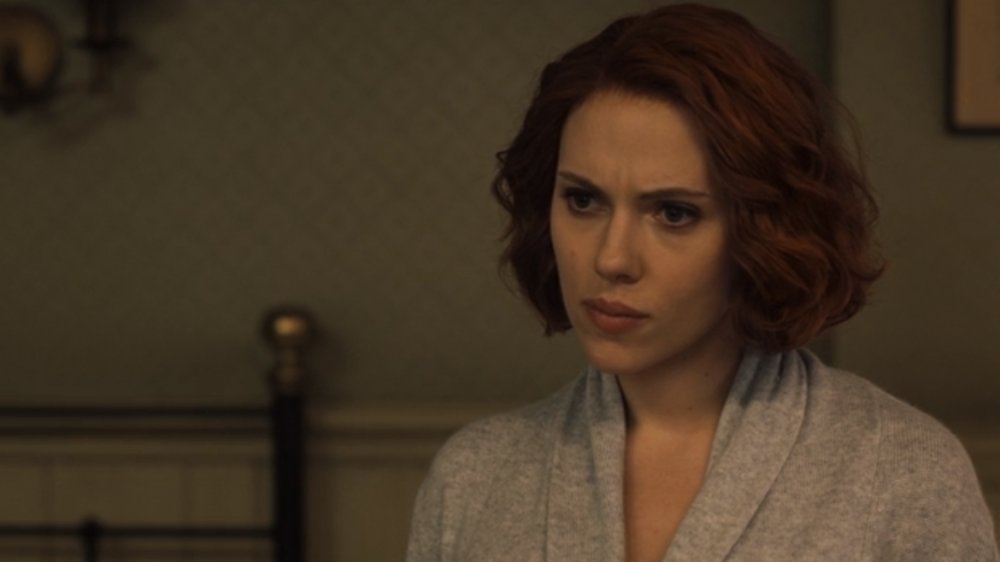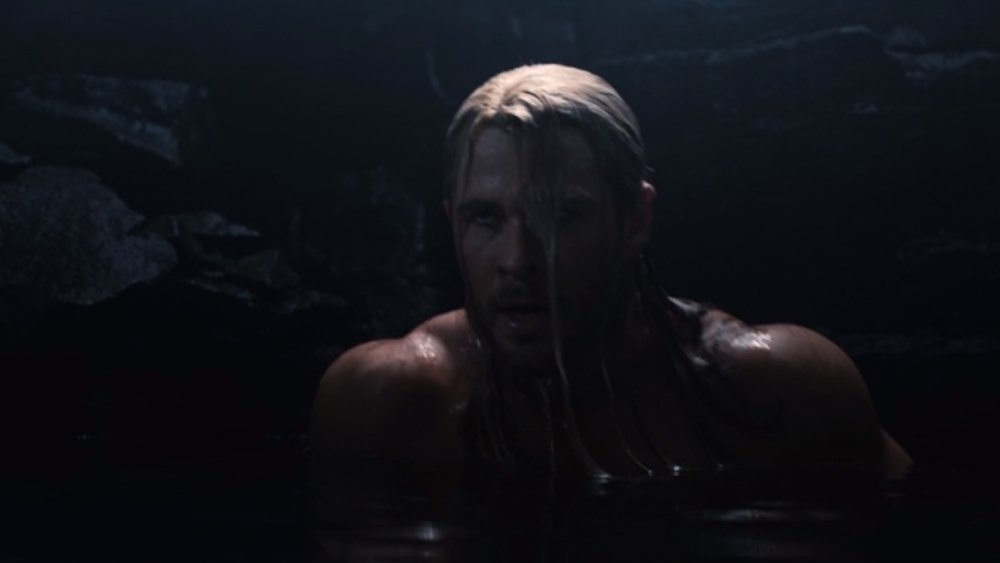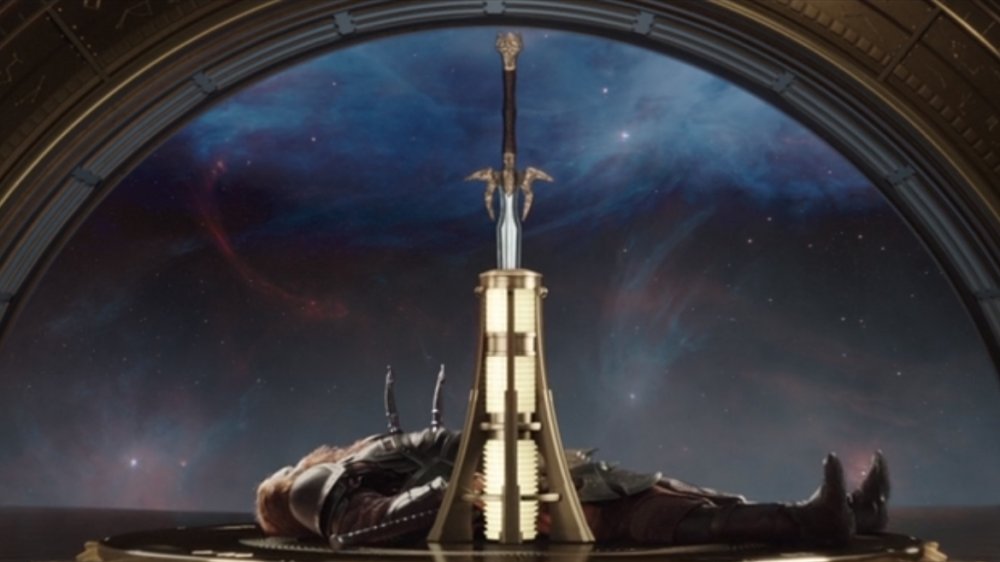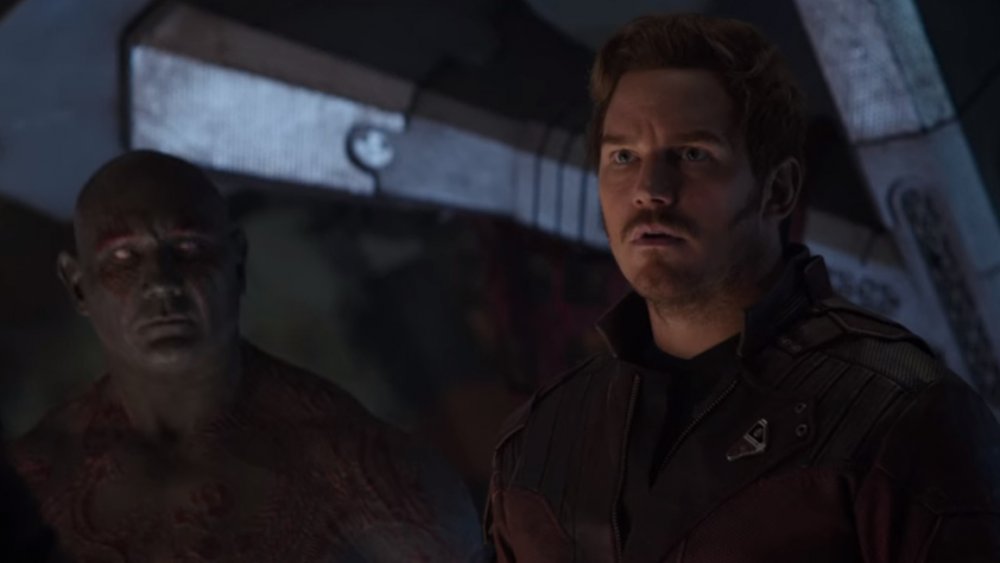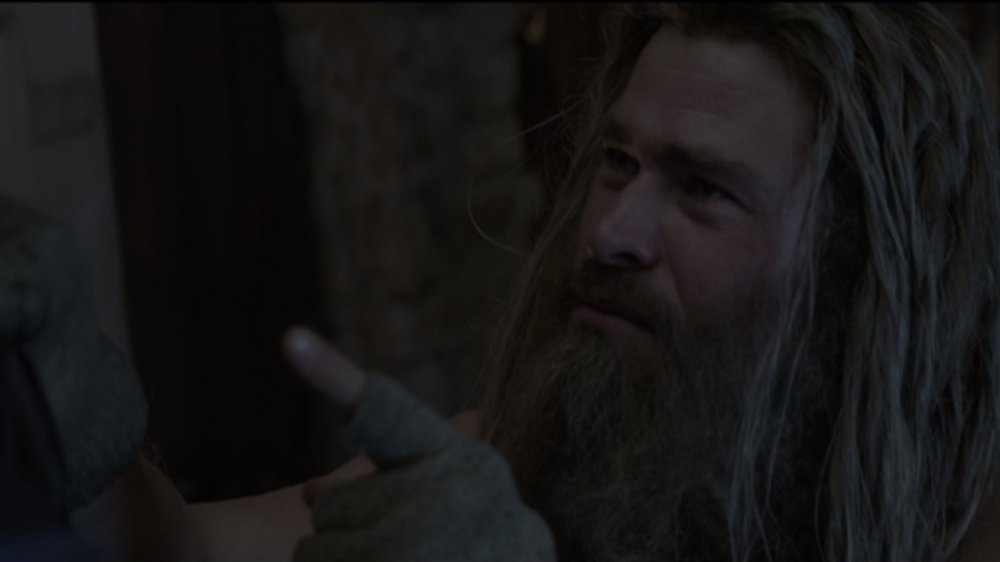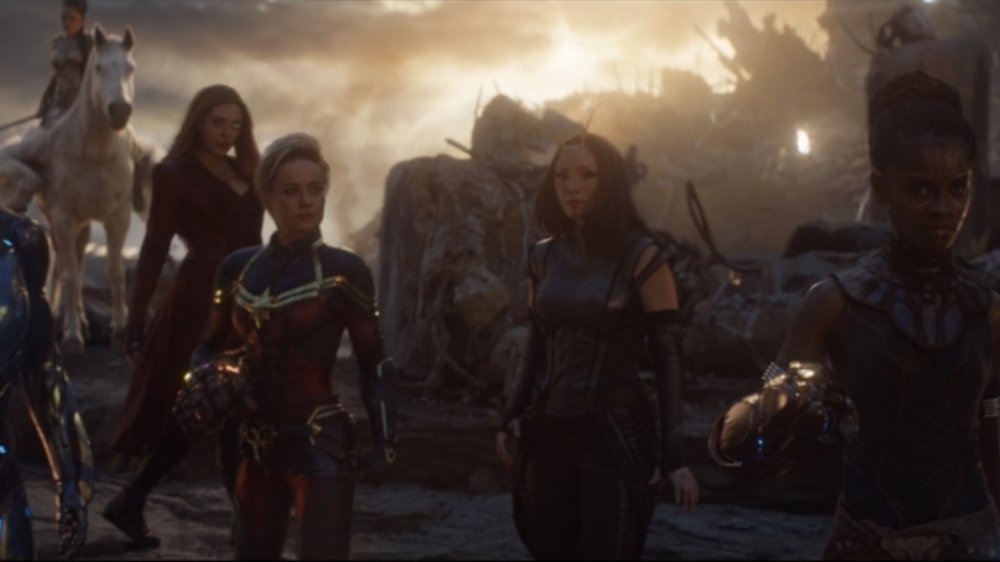MCU Moments That Didn't Age Well
Now that almost the entirety of the Marvel Cinematic Universe's film catalog is available to watch on Disney+, there's never been a better time to re-watch all our favorite superhero movies. Nearly every Marvel film has been well-received upon release, and as we now re-watch them, over and over again in the comfort of our homes, we are pleased to report that most of them are holding up extremely well.
That being said, every once in a while, we hit a truly awful scene that stands out like a sore thumb. Sometimes it's a joke that's far more offensive than funny, sometimes it's a plot point that that's just plain confusing, and sometimes it's a promise made by an early film that never pays off in the later ones.
So before we move on to hopefully bigger and better things with all the future Marvel movies and TV shows to come, let's take one last look at all the clunkiest moments in the entire Infinity Saga, from Iron Man to Endgame.
Pepper takes out the trash
The first Iron Man film has a fair amount of sexism in it. To be fair, most of this comes from Tony Stark himself, and he's supposed to be a jerk. However, when other elements of the film also start reflecting similarly regressive ideas, we have to ask whether this is just a film about a sexist, or a film that is sexist.
The morning after Tony has a one-night stand with reporter Christine Everhart, she wakes alone up in his house. The only other person around is Tony's assistant, Pepper Potts. These two women, who just met, then start having an extremely confrontational conversation for no apparent reason. Christine chides Pepper for being Stark's lowly assistant, saying, "After all these years, Tony still has you picking up the dry cleaning?" Pepper responds with the even less subtle, "I do anything and everything Mr. Stark requires. Including occasionally taking out the trash."
It's Pepper's first real moment in the MCU, and we can't for the life of us understand why the writers decided that the first thing she should do is slut shame Tony's hookup. Much of the first Iron Man film still holds up, but these two grown women sniping at each other like middle schoolers fighting over a boy doesn't do much to endear us to either character. Looking back, this moment seems firmly rooted in harmful stereotypes about "catty" women, and has nothing to do with the story the film should be trying to tell.
The Leader never got a follow-up
Throughout the film The Incredible Hulk, Bruce Banner is on the run, with the ultimate goal of curing himself of his greener half. Collaborating with him over the internet is cellular biologist Samuel Sterns. Once Banner and Sterns finally meet, their goal is in sight — until the antagonist of the film, Emil Blonsky, shows up and captures them. Blonsky then orders Sterns to inject him with Banner's blood, so that he too can gain the powers of the Hulk. Sterns agrees, but in the chaos of Blonsky's ensuing transformation, some of Banner's blood is also spilled into a cut on Sterns' head, and for a moment, his forehead begins to pulse and mutate.
This moment was meant to foreshadow the coming of one of the Hulk's deadliest nemeses, the Leader. The Leader is another gamma-powered superhuman, but unlike the Hulk, who has superhuman strength, the Leader has superhuman intelligence. In fact, he's so smart that it defies human understanding, giving him an ability to predict future events that borders on precognition.
The Leader could have been a truly compelling villain, a plotter and schemer to rival the likes of Loki. However, Bruce Banner was recast before his next appearance, and the Hulk never got another solo film, so none of the ongoing plot threads introduced in this film were ever picked up by later MCU installments (save for William Hurt's return as Thunderbolt Ross, and even that barely acknowledges his history with Banner). Now, whenever we see this tease of the Leader in The Incredible Hulk, it's a painful reminder of how things could have been.
Thor doesn't want to say the "m" word
In 2011, the idea of a Thor film must have been a tough sell. Sure, the Iron Man and The Incredible Hulk films existed, but those movies basically take place in the real world. Thor comes with a whole new setting full of magic, gods, and monsters, and trying to meld that mythology with the relatively grounded Iron Man films without totally breaking the audience's suspension of disbelief probably seemed like an impossible feat.
When you re-watch the original Thor, it's clear that this concern was on the filmmakers' minds, because that movie is extremely non-committal about whether the magic is, in fact, magic. Various Asgardians suggest throughout the film that they aren't really gods, mortals just believe that they're gods. Later, when Erik Selvig accuses Jane Foster of believing in magic, she responds by paraphasing Arthur C. Clarke, saying "Magic's just science we don't understand yet."
Given where future films were heading in just a few years, all this hesitance around adding magic to the MCU is almost adorable in retrospect. Doctor Strange is unapologetically about a wizard, and by Thor: Ragnarok, Marvel has completely abandoned its former hangups about freaking out the normies. Yes, Thor is the actual God of Thunder, and we're also going to throw in a bunch of rainbow sci-fi nonsense, because it's cool. We trust that a compelling story with likable leads will carry us through any setting, no matter how silly.
And you know what? They were right. Keep being weird, Marvel.
A post-credits stinger that still stings
At the end of the first Avengers film, there is an infamous post-credits sequence that, although awesome at the time, now seems a little strange in retrospect. In it, "The Other" speaks with his master, saying, "Humans. They are not the cowering wretches we were promised. They stand. They are unruly, and therefore cannot be ruled. To challenge them... is to court Death." The master, a giant purple man, turns to us and smiles.
This is Thanos, and this line is a reference to the fact that the comics version of the Mad Titan is in love with death, literally. Thanos' goal in the comics version of The Infinity Gauntlet is to win the heart of the grim reaper, and everything he does, including killing half the universe with a snap of his fingers, is done in order to woo her.
When the Infinity Gauntlet story was adapted into the film Avengers: Infinity War, Thanos' motivation was changed. In the MCU, Thanos tried and failed to save his planet of Titan by suggesting that they kill half the population, and now he wants to prove that his plan to save Titan would have worked by re-enacting it at a universal scale.
This one line in the post-credits stinger hints at a version of Thanos that better matched his comics counterpart, and although it's still a fun line, the change to his motivation means that this bit of potential foreshadowing didn't end up paying off quite like we anticipated.
We still can't get over Drax's nonsensical insult
The Guardians of the Galaxy movies have always been a bit more foul-mouthed than the rest of the Marvel universe. Even taking that into account, Drax the Destroyer lets slip a particularly nasty bit of language in the first Guardians film which still bothers us to this day.
For some context, Drax is a vicious warrior who famously cannot understand metaphors or figures of speech. But before the final battle against Ronan, he thanks his new friends for standing at his side, saying, "You, Quill, are my friend. This dumb tree, he is my friend. And this green whore, she, too —" At this point, Gamora interrupts him, offended. Beyond just being inappropriate, we literally can't think of a reason why the completely literal Drax would say this. Drax calling Groot a dumb tree is fine, but Gamora has never done anything even remotely sexual in his presence.
During a live commentary for the film, director James Gunn offered an explanation for this much-hated line, saying "[Drax] heard people saying that to her in the Kyln." The Kyln is the prison where our heroes spend a good chunk of the film. To investigate Gunn's claim, we rewatched that sequence, volume up and subtitles on. Gamora's fellow prisoners call her "scum" and "murderer," because of her association with Thanos, but no one ever calls her a whore.
This frustrating bit of dialogue continues to vex us, and we suspect it will keep aging worse and worse as time goes on.
A scene that is monstrously offensive
Avengers: Age of Ultron has gone down in Marvel history as a somewhat divisive film among fans. On the positive side, it introduced Scarlet Witch and Vision into the MCU, and Ultron himself is a top-tier Marvel antagonist. On the negative side, perhaps no single moment in MCU history is as universally hated as a certain conversation between Bruce Banner and Natasha Romanoff in Hawkeye's "safehouse."
After a particularly harrowing defeat in which the Hulk goes out of control and hurts innocent people, Natasha suggests that she and Bruce run away together. Bruce responds by telling her, "There's no future with me. I can't ever... I can't have this. Kids. Do the math. I physically can't." Natasha responds with a now infamous monologue in which she says, "Neither can I. In the Red Room where I was trained... They sterilize you. It's efficient... Makes everything easier. Even killing. You still think you're the only monster on the team?"
In the defense of the idea of this scene, we like the concept of Banner feeling like a monster after losing control as the Hulk, and Natasha relating to him by telling him that she too has done some terrible things that she regrets. However, expressing that idea by equating morality with fertility is just such a deeply offensive metaphor that it nearly ruins the entire film. Women who can't have children are monsters now? There's not much else that needs to be said about this one. It sucks. Let's move on.
We're still in the dark about that weird cave scene
In Avengers: Age of Ultron, while Scarlet Witch is attacking the Avengers' minds, Thor has a brief vision of the Infinity Stones, followed by a pair of eyes staring back at him. It's so short that Thor can't comprehend its meaning, so he sets out to try to understand in perhaps the most inscrutable and unnecessary subplot in a Marvel film.
Thor visits Dr. Erik Selvig, and tells him that he needs his help. The next time we see the two of them, they are in a cave somewhere that has a pool of water in the center. "This is it. The Water of Sight," says Erik. Thor responds, "In every realm, there's a reflection. If the water spirits accept me, I can return to my dream, and find what I missed."
What is this pool? Who are these "water spirits?" None of this is ever explained. Additionally, all the dialogue in this scene happens when the actors' faces aren't on screen, meaning that it's likely that it was changed and re-recorded after filming. We get the feeling this scene was, at one point, part of a much larger subplot, but then it was cut down until only this one extremely strange moment remained. And probably the only reason that even this much made the final cut is because it sort of explains how Vision gets his name.
Could we maybe get in the pool, so that we could have a vision that explains what is up with this scene?
The Warriors Three are both gone and forgotten
In many ways, Thor: Ragnarok is almost a reboot for the Thor franchise. It's far more comedic than its predecessors, and many old characters are written out or killed off to make room for new ones. Some characters, like Odin, are given a proper send off, a truly memorable death scene. The Warriors Three, however, are killed off with such little ceremony that by the time the film ends, you might forget that they were in it at all.
The Warriors Three are Volstagg, Fandral, and Hogun, a trio of legendary Asgardian warriors and Thor's best friends. In Thor: Ragnarok, they are among the many killed by Hela during her conquest of Asgard. First she offs Volstagg and Fandril by throwing some knives at them, then she kills Hogun in a one-on-one duel, but at least he gets to go out in a blaze of glory.
If these scenes don't land as intended, it's not Thor: Ragnarok's fault. Rather, these deaths make us confront the fact that we never really cared about the Warriors Three to begin with. By the end of Ragnarok, we'd be far more upset if Korg or Valkyrie died, and we just met them. Heck, even Skurge's demise hits harder than the deaths of... what were their names again?
Fortunately, Lady Sif was spared the fate of Thor's other bros. This leaves the door open for her to return in Thor: Love and Thunder, and we can live with that. She was always our favorite anyway.
The off-screen destruction of Xandar remains off-putting
Throughout the first Guardians of the Galaxy film, our heroes spend most of the story trying to keep Thanos' forces from getting their hands on the Power Stone, one of the six Infinity Stones. In the end, they succeed, and leave the stone with the Nova Corps on the planet Xandar, after incidentally saving that planet from destruction.
Because of this, many viewers were confused when Avengers: Infinity War began with Thanos inexplicably having the Power Stone in his possession. A later throwaway line of dialogue from Thor clarifies that Thanos "stole it last week, when he decimated Xandar." There is then a brief cutaway to Peter Quill's face, where he looks momentarily distraught, and then the film moves on. Xandar is never discussed again.
We understand that Infinity War was telling one of the most complex stories in film history, and thus had many masters to serve. Some storylines just weren't going to get the time that they deserved. That being said, one of the most important planets in the Guardians of the Galaxy films is "decimated" by Thanos, and we don't even get a fifteen second flashback? Peter Quill has no follow-up questions?
If we had seen the destruction of Xandar, it might have been a powerful, gut-wreching scene, but as it is presented, this plot development feels like a cheat in narrative logic. Frankly, it almost makes the entire first Guardians film feel like a waste of time in retrospect.
We still aren't laughing at Endgame's fat jokes
After the time skip in Avengers: Endgame, we see that some of the Avengers process their grief better than others. Captain America starts running a support group, while Iron Man starts a family. When we are re-introduced to Thor, though, it's perhaps the biggest shock of all. The God of Thunder has sunk into a deep depression, and his once chiseled body is now, for want of a better word, fat.
Now, this isn't inherently a problem — there are some good things about Thor's arc here. Weight gain is a common consequence of depression, and Thor isn't fighting monsters anymore, so it makes sense that he'd put on a few pounds. Also, after seeing dozens of heroes with the same exact body type, it's genuinely refreshing to see a one with a belly. And note that when Thor heads into battle against Thanos at the end of the film, he's still just as cool as he ever was, without being suddenly magically thin again. He is however, cleaned up significantly, with his beard now braided, showing that Thor's weight wasn't the problem, his depression was.
What is a problem, however, is just how often Thor's weight becomes a punchline. The reveal of his new physique is absolutely played for laughs, and not only do Thor's teammates regularly mock him, his own mother tells him (in the middle of an otherwise heartbreaking scene) to eat a salad. A decade from now, we suspect that these moments are going to age about as well as all the jokes about Fortnite.
We don't find the "girl power" moment all that empowering
Now, we have to discuss a moment that we are so deeply ambivalent about, we don't even know where to begin. We love it. We hate it. It's empowering. It's patronizing. Let's talk about the "girl power" sequence in Avengers: Endgame — the bit when Captain Marvel carries the Infinity Gauntlet across the battlefield, and every other female hero present in the battle assists her.
In some ways, this sequence is great, and of course we all want more lady representation in our superhero films. However, up until now, most of these characters have had far less screen time than their male counterparts. In that context, the fact that this all-girl action scene is so conspicuous and self-congratulatory means that it's extremely difficult to take seriously. Sorry, Endgame, but you relegate most of your female characters to this single minute of a three-hour movie, and then you pat yourself on the back for it?
This is indicative of the way that Marvel has handled female representation throughout all its films so far — relying far too much on big but short moments. Pepper gets superpowers in Iron Man 3, but they are immediately stripped away. Thor bestows rulership of Asgard to Valkyrie in a scene during Endgame, but she barely appears in the rest of the film. Men get movies. Women get moments. As Marvel moves into its next phase — kicking off with the long-overdue Black Widow — let's hope it will be one where equal female representation will be a fact, and not just a moment.
